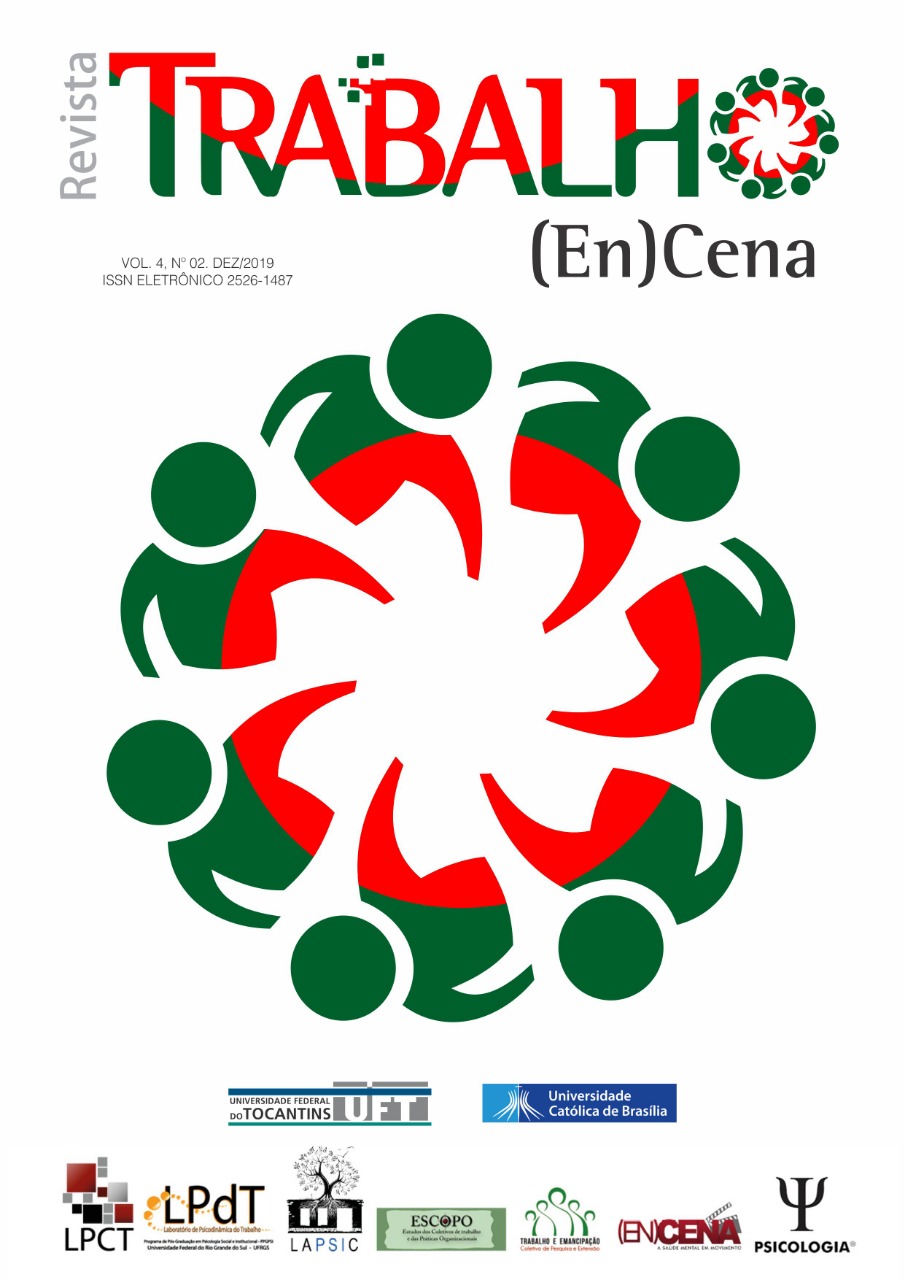Academic experiences and psychic suffering in medical students
DOI:
https://doi.org/10.20873/2526-1487V4N2P451Abstract
Studying Medicine accompanies personal and social charges, as it is a profession of great responsibility. The course has a high workload and requires dedication, effort and sacrifice from its students, who often need to give up leisure activities and create new study habits. It aims to describe the physical, psychological and social problems identified as caused by academic life as a medical student. The research was conducted with 36 students from all periods of the course, randomly selected. The Protocol for the Evaluation of Occupational Psychosocial Risks - PROART, in addition to a semi-structured interview, was used. The results showed psychological symptoms, such as moodiness and willingness to be alone, and physical symptoms such as headaches and backaches. In addition, academics have stated that there is a need for change in the curriculum and have been shown to suffer from lack of time and anxiety in the face of daily pressures. It is concluded that the Medicine course, with its strenuous workload and for requiring full-time dedication, can expose students to exhaustive situations and suffering, showing the importance of reflecting on the way they deal with their formation and think about strategies to mitigate the experiences of suffering.
Downloads
Published
How to Cite
Issue
Section
License
Os direitos autorais dos artigos publicados pela Revista Trabalho EnCena permanecem propriedade dos autores, que cedem o direito de primeira publicação à revista. Os autores devem reconhecer a revista em publicações posteriores do manuscrito. O conteúdo da Revista Trabalho EnCena está sob a Licença Creative Commons de publicação em Acesso Aberto. É de responsabilidade dos autores não ter a duplicação de publicação ou tradução de artigo já publicado em outro periódico ou como capítulo de livro. A Revista Trabalho EnCena não aceita submissões que estejam tramitando em outra Revista. A Revista Trabalho EnCena exige contribuições significativas na concepção e/ou desenvolvimento da pesquisa e/ou redação do manuscrito e obrigatoriamente na revisão e aprovação da versão final. Independente da contribuição, todos os autores são igualmente responsáveis pelo artigo.






